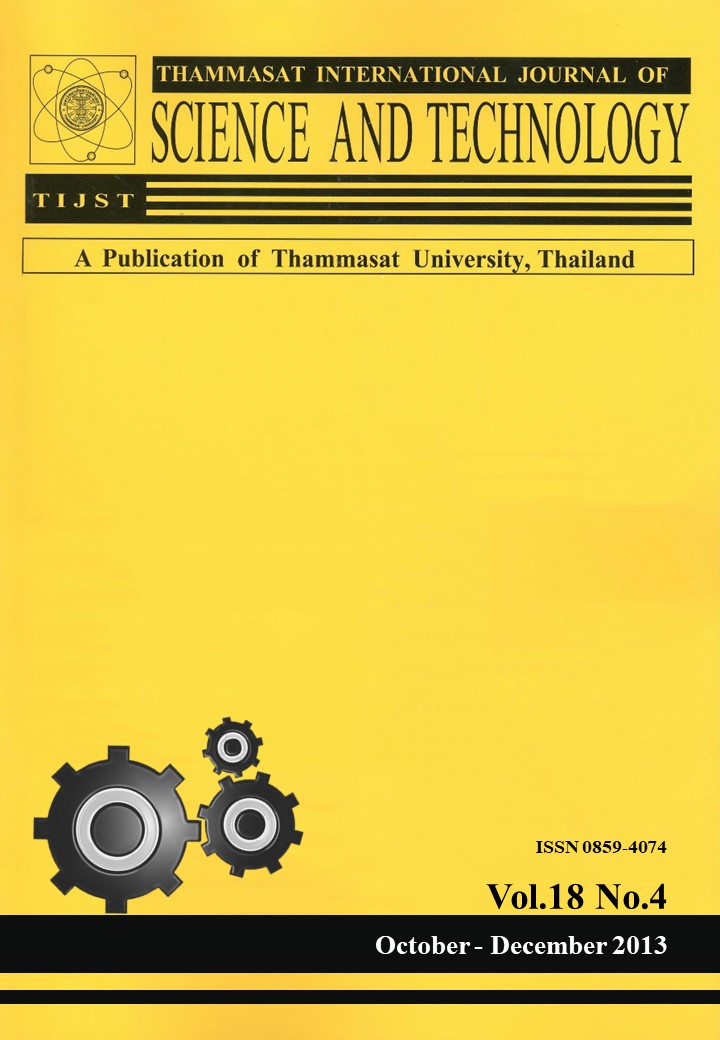Treatment of Wastewaters from Offset Printing Industry by Fenton's Reaction
Main Article Content
Abstract
Offset printing is currently one of the most widely used techniques in the printing industry. This technique can be applied for the production of reading materials including newspapers, brochures, leaflets, magazines, and books. The offset printing business expansion in Thailand has been reported as high as 5-7.5% per year, posing adverse effects on the environment as larger volumes of wastewaters have been produced. Analysis of offset printing wastewater revealed that the chemical compounds in the form of COD were typically in the range of 600-2,100 mg/L, whereas its high color content was also difficult to be treated. Therefore, in this study, advanced oxidation processes (AOPs), using the Fenton’s reaction were employed to remove COD and color from the actual wastewater collected from an offset printing company. Batch experiments were conducted to study the effects of Fe2+ and H2O2 on COD and color removal. The wastewater used in this experiment was previously kept in a container for 3 hours to allow settling of suspended matters. During the Fenton's reaction, the pH of the wastewater was controlled at 3.0 and under ambient conditions. The results demonstrated that the COD removal efficiency was greatly influenced by Fe2+ and H2O2. At an Fe2+: H2O2 ratio of 0.04: 0.20 (w/w), the maximum COD removal efficiency achieved was 89.4%, while the color removal efficiency was 74.8%. Increasing of the H2O2 dosages obviously showed an improvement of the color removal efficiency.
Keywords: Offset printing industry, Fenton’s reaction, COD removal, Color removal.


